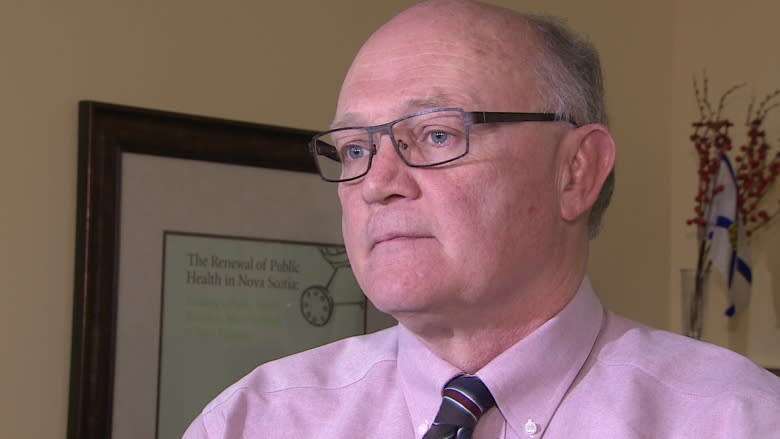Only legal weed you'll find this spring is a dandelion, despite pot bill
Nova Scotians looking forward to picking up a gram of grass along with their groceries shouldn't get overly excited because Ottawa is expected to table legislation today to make marijuana legal for recreational use.
According to one of the key players planning the province's foray into the legal drug trade, it could be years before pot is available on store shelves in the province.
"We're talking about at least a two-year time period to do this properly and to do this well," said Dr. Robert Strang, Nova Scotia's chief medical officer of health.
Federal vs. provincial duties
Strang is on two key committees working on all the issues associated with making marijuana legal and available. He is on a federal-provincial committee, as well as a provincial working group that includes officials from the Health, Justice and Finance departments.
A spokeswoman for the provincial Justice Department said the minister and deputy minister spoke with the federal justice minister and provincial justice ministers from across the country on Thursday afternoon. The department will have "more to say" next week after the working group meets, the spokeswoman wrote in an email to CBC News.
As CBC News has previously reported, the Trudeau government's goal is to make legalization a reality in Canada on or before July 1, 2018.
Ottawa's role is focused on growing and supplying a safe product, as well as setting the rules for packaging and labelling.
Nova Scotia will be responsible for distribution, determining the minimum purchasing age and price, along with deciding who will sell the drug.
Safety over revenue
Although there are potentially millions of dollars to be made in taxes and sales, Strang said that has not been a major focus.
"Revenue generation has not been identified as one of the objectives by the provincial government."
The priority, he said, is "first and foremost to protect public safety, especially as it pertains to youth, but also to decrease the organized crime or the criminal element involved in cannabis."
When it comes to trying to curtail the illegal trade, price is a key component. So, too, is the legal purchasing age. Strang said neither has been decided.
Young adults smoking up the most
He said medical studies suggest setting the minimum age in the early 20s would be the least harmful, but that's not the only consideration.
"Our highest usage rates of cannabis are in those young adult years so if we set a legal age too high, then they're still going to access cannabis in an illegal way," said Strang.
"So it's a balance between those different perspectives. Where we're landing in Nova Scotia is that our minimum age, to be consistent with tobacco and alcohol, would be a minimum age of 19."
Strang said the government has also not decided which option works best when it comes to where to sell pot. Possibilities include "a government monopoly to private retail or a hybrid," he said.
"A government monopoly is the preferred model, but also if you do have private retailers, then you have to have a strong regulatory approach and a strong enforcement approach to adhere by the rules."
NSLC should sell pot, says NDP
The NDP recommends that, once marijuana is legal, the province should distribute it through the Nova Scotia Liquor Corporation.
"Many people have reasonable concerns," said Diane Peterson-Rafuse, NDP critic for business, in a news release. "Committing to distributing marijuana through the NSLC is a logical first step to ensuring a framework is in place that protects public health and safety."
NDP Leader Gary Burrill agrees.
"The people of Nova Scotia must be assured that a public agency will distribute marijuana," he said in the news release.
Using the guidelines already in place for tobacco and alcohol sales could speed up the process of making marijuana available. Dalhousie University law professor Archie Kaiser told the CBC in March that the legalization of alcohol after Prohibition in the U.S. could serve as an example of how Canada could proceed.
The news release from the NDP cites a survey of NSLC employees, 70 per cent of whom support the sale of marijuana through NSLC stores. Ninety-two per cent support the sale through publicly controlled, stand-alone stores. This would address concerns about selling marijuana alongside liquor.



